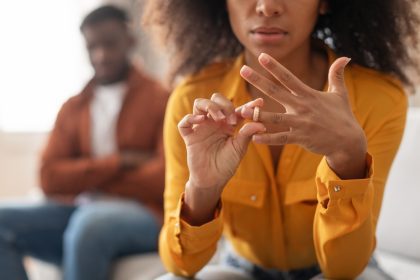Your relationship is drowning in a sea of unspoken complaints, unnoticed efforts, and taken-for-granted daily gestures. You notice every time your partner leaves dishes in the sink but completely overlook the fact that they filled up your gas tank without mentioning it. This negativity bias is hardwired into human psychology, but it’s quietly poisoning your connection one overlooked kindness at a time.
Gratitude isn’t just feel-good fluff or spiritual platitudes. It’s a scientifically proven relationship transformer that rewires your brain to notice positive patterns instead of dwelling on problems. When couples intentionally practice appreciation, they don’t just feel better about their relationship, they actually start behaving in ways that create more reasons to feel grateful.
Gratitude rewires your brain to notice the good
Your brain is naturally programmed to scan for problems and threats, which means you’re more likely to notice your partner’s annoying habits than their thoughtful gestures. This negativity bias served our ancestors well when survival depended on spotting danger, but it can be devastating in modern relationships where safety isn’t the primary concern.
Practicing gratitude literally rewires your neural pathways to become more sensitive to positive experiences and behaviors. When you regularly acknowledge things you appreciate about your partner, your brain starts automatically noticing more appreciable behaviors. This isn’t about forced positivity, it’s about training your attention to see the full picture instead of just the problems.
Appreciation creates positive behavioral feedback loops
When you express genuine appreciation for something your partner does, you’re not just acknowledging their behavior, you’re increasing the likelihood they’ll repeat it. This isn’t manipulation, it’s basic human psychology. People naturally want to do more of the things that make them feel valued and recognized.
The reverse is also true. When positive behaviors go unnoticed or unappreciated, people tend to do them less frequently over time. Many relationship problems stem from partners who have stopped doing thoughtful things because their efforts consistently went unacknowledged. Gratitude breaks this cycle by creating positive reinforcement for the behaviors you want to see more of.
Grateful couples communicate differently during conflict
Couples who regularly practice gratitude approach conflicts with fundamentally different mindsets than those who don’t. When you’ve been actively noticing and appreciating your partner’s positive qualities, you’re more likely to give them the benefit of the doubt during disagreements and assume good intentions rather than malicious motives.
Gratitude also provides emotional balance during difficult conversations. When you remember the things you appreciate about your partner, conflicts feel less threatening to the overall relationship. You’re arguing with someone you love and value rather than fighting an enemy who never does anything right.
Appreciation shifts focus from criticism to solutions
Relationships without regular gratitude often get stuck in complaint cycles where partners focus on what’s wrong rather than what’s working. This creates a negative atmosphere where every conversation feels like a criticism session. Couples become experts at identifying problems but lose the ability to appreciate progress or positive changes.
When gratitude becomes a regular practice, it shifts the entire emotional tone of the relationship from problem-focused to growth-focused. Instead of dwelling on what your partner isn’t doing, you start noticing improvements and efforts. This creates motivation for continued positive change rather than defensive resistance.
Gratitude builds emotional resilience during stress
Every relationship goes through difficult periods where external stressors test the partnership. During these challenging times, couples with strong gratitude practices have better emotional reserves to draw from. They remember why they love each other and what works well in their relationship, which helps them weather temporary storms without losing sight of their connection.
Grateful couples also support each other better during individual challenges because they maintain awareness of each other’s strengths and positive qualities even when times are tough.
Creating a gratitude practice that actually works
Effective relationship gratitude goes beyond generic thank-yous or forced daily appreciation lists. It involves noticing specific behaviors, acknowledging efforts rather than just results, and expressing appreciation in ways that feel meaningful to your partner.
This might mean thanking your partner for how they handled a difficult situation rather than just what they accomplished. It could involve appreciating their patience, kindness, or effort rather than only acknowledging major achievements. The key is developing genuine awareness of the many ways your partner contributes to your life and relationship.
Gratitude transforms relationships by changing both how you see your partner and how you behave toward them, creating an upward spiral of appreciation and positive connection.

















